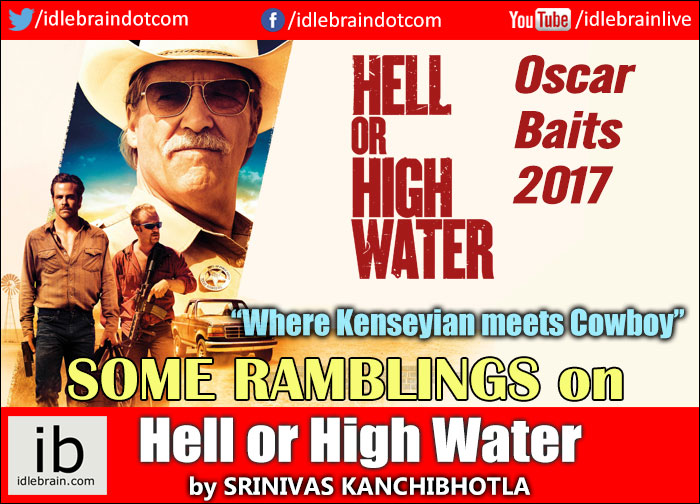
'Layers' is often a misunderstood word when it comes to screenplays. It is often confused with perspectives. While perspective is simply a point of view (which in itself is a powerful device if used properly, like in 'Rashomon', or in the Indian version, 'Virumandi'), layer implies a deeper meaning than what is often seen on the surface. Musically, it can be equated to a counterpoint. When different notes are sung/played in unison, it becomes a harmony. But when two harmonies come together, it becomes a counterpoint. Individually each harmony has its own purpose. But put together, the counterpoint creates an entirely different listening experience. 'Layers' is akin to that. To extend the example even further, a metaphor is used as to project a scene on a different plane. The most common examples used in Indian movies of the yore are a deer being chased by a tiger, a bee dipping into the flower, two snakes doing the mating dance and the like. But when the metaphor extends to the entire movie, instead of being restricted to a single scene, then it is deemed to have 'Layers', meaning, the proceedings at play take one meaning, while the matters left unsaid take a different meaning altogether. A classic example of a layered movie is the phenomenal 'Chinatown' made in the golden period of the 70s. While on the surface, it is a straightforward detective investigating a case of corruption and murder in 40's Los Angeles, a different thread runs concurrently (or undercurrent) about a father's immoral abuse of his daughter who then goes on to use his exalted position in the society to cover up the crime. The corruption, which involves routing of the city waters during a drought season in the summer to arid parts of the city to raise the land prices in that area, goes on at the behest of the same influential man who uses his daughter to get to his other daughter (also the former's mother). Now that is some multi-layered story about power abuse at the highest levels, be it in a family or the society. Coens, masters of these layered narratives, attempt weaving such disparate, yet similar on some level, strands in each of their ventures, never more poignant than in 'No Country For Old Men', a study of the true nature of evil.
On a similar vein, 'Hell or High Water' appears to be a plain case of a couple of brothers looting banks in West Texas and a Ranger on the verge of retirement taking on this case as his parting shot. Taylor Sheridan's (on a hot streak, following 'Sicario') script appears to have all the elements of a classic western, except this one runs on wheels in the desolate areas of the rural Texas. The brothers in question aren't greedy in the least. They rob banks of trifle amounts that don't even warrant involving FDIC. The choice of the location of the script is particularly interesting. These are weathered/withered down regions in the state that development, industrialization or even modicums of modernity have long passed by, and the only insitutions of interest (in every sense of that word) are the Banks. These regions are however rich in oil deposits so much so that Pumpjacks remain the only sign of modernity around here next to a motor car. People own large tracts of land with considerable oil wealth in it, but not enough money to draw the oil out. And the banks swoop in to fill in the gap, lending money in what are called reverse mortgages (where banks keep paying the borrower the money until their death upon which the banks claim possession of the lands) in as much a predatory fashion as the subprime mortgages from a few years ago. The terms are loaded against the borrower as the banks simply wait them out in the age-game to collect the due back, pennies on the dollar. Even the title of the movie is a double entendre, where a 'Hell or High water' is actually a clause written up into these contracts that regardless of the hardship, the loan has to be paid up. The movie is as much a typical Western as it is a searing comment on the faceless institutions scavenging on vestiges of the society rendering them desolate, deserted and desparate in the end, with its closed down businesses, empty strip malls and eventually urban flight. Though it is a very scenic route of the little guy scamming a faceless, heartless institution, like a casino, a bank, an insurance company, even the IRS, where the audience roots for the anti-hero to make away with the booty at the end of the movie, 'Hell...' makes it harder for itself by obscuring the motivations of the brothers right till the end, and siccing an aging Ranger, with a near heart of gold, on them.
The directorial style has to be greatly appreciated for keeping the proceedings lazy and languid, much like the drawn out drawl of the southern accent. While the material, rich in bank heists, shoot outs, cops and robbers chases, would call for pressing down the pedal on high octance intensity, the deliberate choice to keep it more contemplative than combative, allows the focus to slightly shift from the proceedings on screen and on to the reasons for the decay and decimation of vitality in the rural parts of the country. The movie is an indictment on the ruthless exploitation of the rural regions by corporate America that counts development in terms of pumpjacks than people. Economics treatise wrapped in a Western Shoot out? Talk about layers...
checkout http://kanchib.blogspot.com for Srinivas's Blog.
